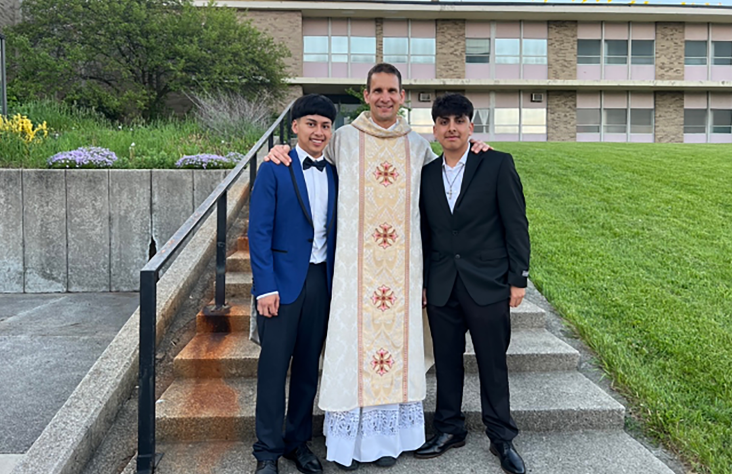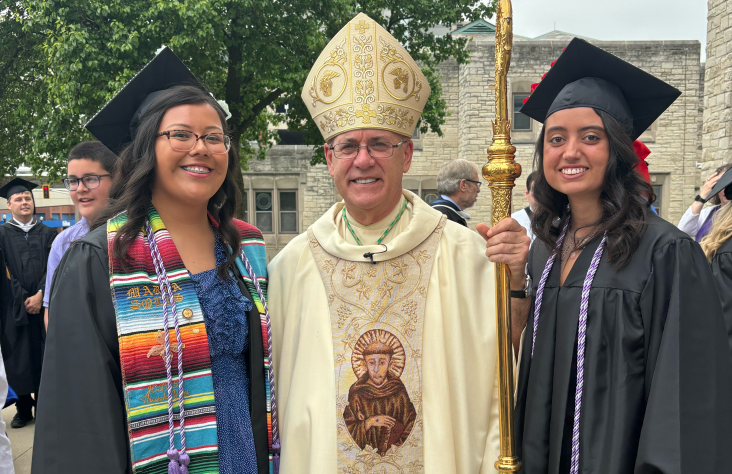January 4, 2017 // Uncategorized
All nations are invited worship the long-awaited King
By Msgr. Owen Campion
Epiphany of the Lord
Matthew 2:1-12
This weekend the church celebrates the ancient Feast of the Epiphany of the Lord, commemorating and reflecting upon the visit of magi “from the East” to the crib side of the newborn Savior.
For the first reading, the church presents a passage from the third and last section of Isaiah. After four generations of exile in Babylon, survivors, or descendants of survivors, of the long-past Babylonian conquest of the Holy Land finally were able to return to their homeland.
When Persia, in turn, overtook Babylonia, Persia’s King Cyrus allowed the exiles to leave Babylon and to return to the Holy Land. But the homecoming was bittersweet. The land to which they returned after so many years was desolate and unyielding.
The prophets insisted that, in spite of this desolation, times would change for the better, because God would not forget the chosen people.
Thus, this reading rejoices in God’s salvation, not the bad fortune. He will vindicate the people. In justice and mercy, God will come. The prophecy predicts a great new day.
For the second reading the church offers us a selection from the Epistle to the Ephesians. It is a frank and direct statement that God intends salvation also for the Gentiles, not only for the chosen people.
St. Matthew’s Gospel furnishes the last reading. Among the four Gospels, only Matthew and Luke refer to the conception, birth and very early life of Jesus. Mark and John are silent on these subjects.
Between Matthew and Luke, only Matthew has the story of the magi. This story is one of the most profound and expressive revelations in the New Testament. Better understanding of it requires recognizing the symbols and images contained in the passage.
First, the Gospel speaks of visitors “from the East.” “From the East” was a phrase referring to much more than a direction of the compass. It meant a distant and unknown place. It was a term of mystery. What was the origin of these visitors? All that is known is that they were “from the East.”
Who and what we they? Scholars cannot agree, and have not agreed, on a translation. Some think that they were astrologers, in a time when astrology was heavily associated with theology and philosophy. Others think they were nobles or kings. Another term is “magi,” its meaning unclear.
Whatever the answer, they were gifted, learned and very sincere people from someplace far away, strangers earnestly seeking the true God. Art and legend have seen them over the centuries as three in number.
Herod tried to frustrate their search, hoping to remove any threat to his corrupt control over the people, fearful as to what a “newborn king” might do. Looking for clues, he discovers that according to the Scriptures, the Savior indeed will be born in Bethlehem.
Overall, the message is powerful. The magi, only human, yearn for God but cannot find God on their own. God assists them, with a star in the sky and even through the evil Herod.
Reflection
This wondrous feast teaches a vital lesson. First, we must recognize that we are limited humans, even sinners. We are helpless, in the last analysis.
Accepting our limitation is one message. We also should examine what we regard as rewarding. Too often, we allow ourselves to slip into the role of Herod. We look for security in earthly terms. We make judgments based on earthly instincts. Fear overtakes us.
The divinity found by the magi in Bethlehem hardly met earthly expectations. God was a newborn child, innocent, indeed helpless, with Mary.
Finally, God alone supplies the answers — and reward — in life. The wonder is that if we are sincere, God will guide us to Himself, living in Christ.
The best news. Delivered to your inbox.
Subscribe to our mailing list today.





